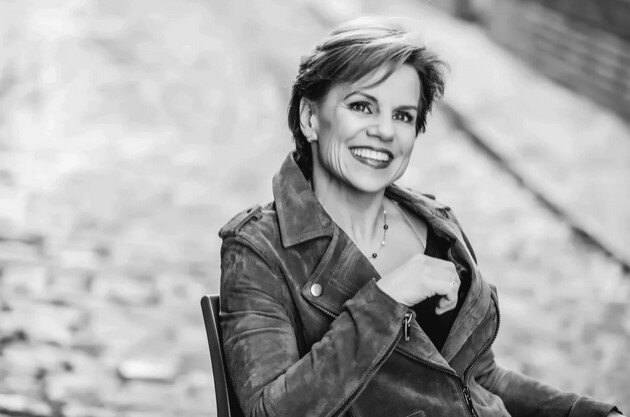“Flexible commitment is a fundamental inescapable paradox of life.” Jeremy Sherman PhD
Every day we are presented with decisions that may or may not align with our core beliefs. The process that we use to make decisions can be pretty effortless when the decisions are not “do-or-die”, however, when we are forced to make bigger decisions that will influence or affect our health, finances or relationships, many of us freeze in indecision, our inner emotional state laced with profound fear and dread.
And what do we fear most? Feelings of doubt and regret: two natural human emotions that actually help our decision-making process, but only if we are open to a deeper exploration into our personal awareness.
What often happens is that we are going along in our life with everything is moving along pretty smoothly, when all of a sudden, our emotional state gets hijacked: all circuitry goes haywire when we experience cognitive dissonance.
Cognitive dissonance is feelings of discomfort between our attitudes or behaviors. According to Leon Festinger (1957), cognitive dissonance theory suggests that we have an inner desire to hold all our attitudes and behaviors in harmony and avoid disharmony. For example, someone who smokes (behavior) knows that smoking causes cancer (cognition), therefore, they are in a state of cognitive dissonance. In order to relieve this state and get back into a state of harmony, something must change in order to retain homeostasis.
We can do the following to retain emotional harmony:
-
Change. (ie quit smoking, stop binge eating, stop picking the wrong person to date, quit gambling)
-
Acquire New Information that Outweighs the Dissonant Beliefs. (Bargaining away our behaviors and habits by finding statistical justification)
-
Reduce the Importance of Cognition (“Hey, we only live once.” “I can start my diet tomorrow.” etc.)
How to move through these life challenges, however big or small, is key to living a more positive and affirming life. And how you choose to resolve the dissonance and its accompanying discomfort is a good reflection of your emotional wellbeing. By viewing these challenges as a great opportunity for growth allows you to embrace your full range of emotions, which informs your life path going forward.
Below are 4 ways you can apply to make your life decisions with greater confidence and self-awareness:
-
Expect some doubt and regret as a possible outcome to any decision you make. These are natural human emotions. Let them inform you, not nail you to your current predicament. You are not a tree. You can pick up and change at any time. It is our human right to change our minds. Judge yourself less. You are human and you are growing- celebrate all aspects of your process of discernment, with humor and grace. This process of acceptance is one of the greatest gifts of being human.
-
When weighing out a decision, imagine the downside of each possibility. What this does is minimize the negative experience, if (and perhaps when) things don’t work out as planned. Information is power, both mentally and emotionally. If you are willing to face ALL that is possible in your life, you are less like to freeze in indecision and fear when the time comes when you will have to move forward and through the highs and lows of your decision. Moving confidently through the directions of your dreams is easier the more informed and aware you are. Good for you for committing to the best version of you.
-
Remain flexible. Expand your horizon to all possibilities when moving forward with a life change. For example, you set a goal to lose 10 pounds before your high school reunion. It is important to take into consideration not only the variables such as your changes in diet and exercise that will be required but also the emotional changes you will experience as you move through your transformation. As a coach, where most people fall down is when they are pulled to old habits (late-night binging, blowing off the gym, dating another jerk, buying another pair of shoes) and they revert to bargaining and justifying their backward slide. This is the time where a coach or an accountability partner is key. Flexibility is understanding that there will be resistance, that you will be pulled back to old behaviors, however, you understand and accept that course correcting is always an option at any given moment. Define yourself not by your failures, but by your ability to fall and get back up again, without a loss of enthusiasm. You got this.
-
Be Prepared for Resistance. People will judge you, undermine you, and expect you to fail when you decide to make a bold change in your life. And the most shocking part of this? The people that supposedly love you the most will often be the least likely to be the ones cheering you on. People will resist your change, no matter what your resolve. Your best defense? Be prepared for the resistance by planning your statement of intent. Declare your decision with confidence and resolve. If you are clear on why you are making these changes and knowing that it serves your highest best self, you will be less swayed by someone’s temper tantrum or even your own self-sabotage. It’s your time to live your best life. You can attain this by staying true to your best version of YOU.
By embracing the pros and cons of your decision, your ability to stay committed will be increased despite both internal and external resistance. Cognitive dissonance is a natural part of personal transformation. Expect and embrace it by preparing your approach and remember to stay open to all with wonder and humor that life offers us.
Because what I know for sure is that laughter is often the antidote to life’s greatest challenges and sorrows. Enjoy the ride!
Love always,
Kate

